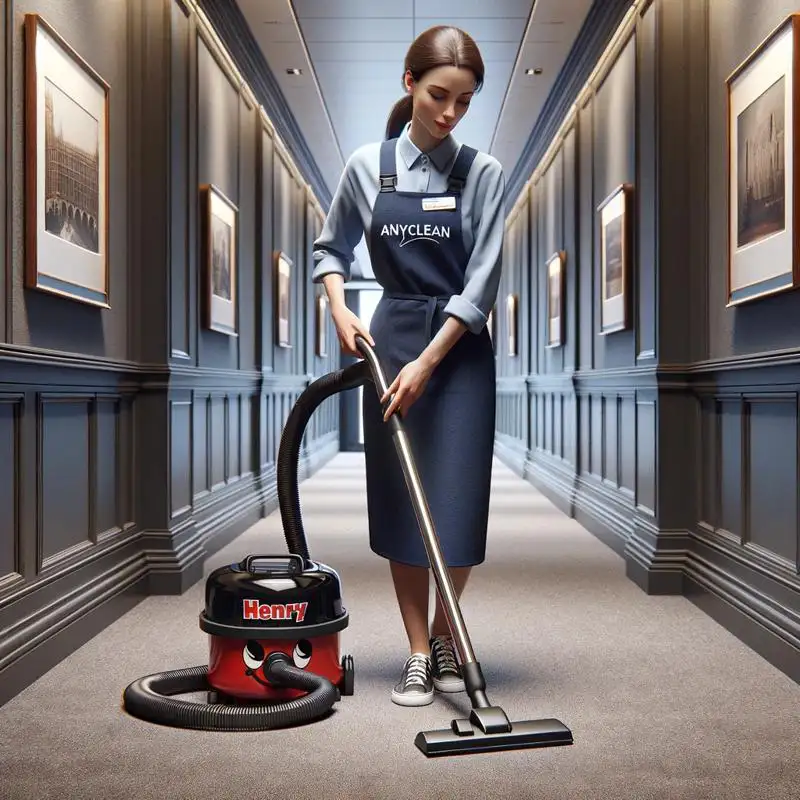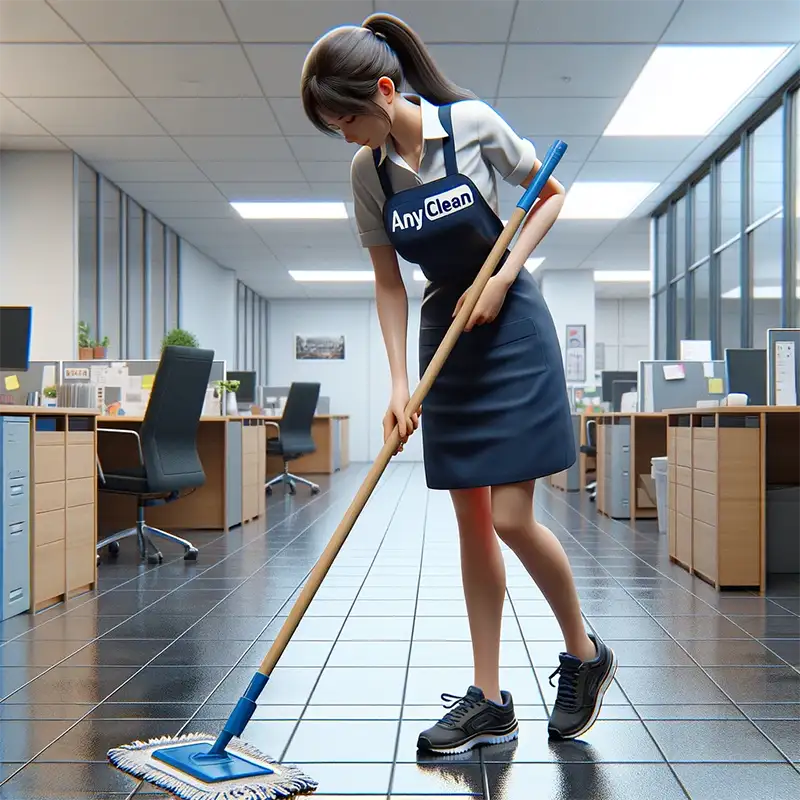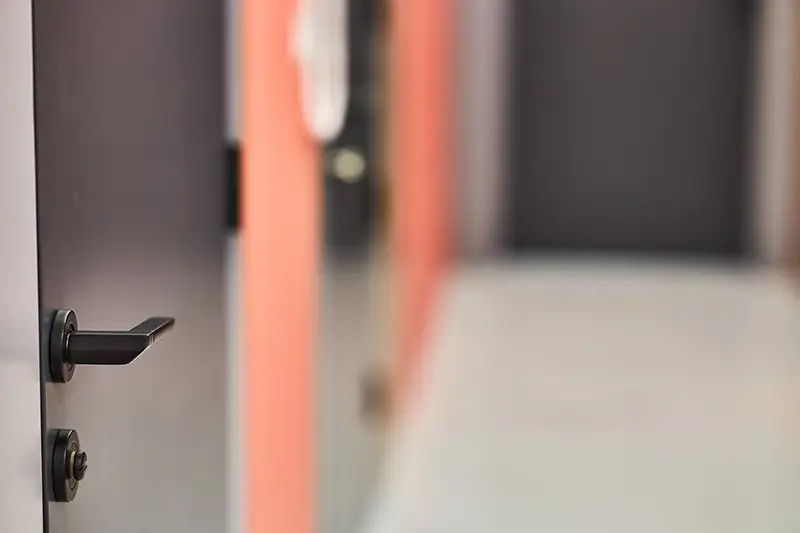In his comic fantasy novel Jingo, the late Sir Terry Pratchett described a scenario in which neighbours get along for years without any incident, but then something happens, and before you know it, someone’s got a garden fork through their ear. Of course, I can’t put it quite as well as the great Sir Terry did! However, communal area cleaning can be just as fraught a topic, given human nature and how touchy even the nicest person gets when common areas or communal areas are involved, even if things don’t quite get to the fork in the ear stage.
Given the touchy nature of communal area cleaning, it’s important to know what to do and (possibly even more importantly) what not to do. After all, one wants to get on well with the other people and the other businesses whom you share an office block with. Especially if one of the other businesses in the block is a firm of lawyers…
What Counts As A Communal Area?
A communal area or a shared area is any part of a building, such as an office block or commercial premises, that is used by multiple tenants. Communal areas apply in the residential context as well, but here, we’re focusing on commercial communal area cleaning. Residential or domestic communal area cleaning tends to be sorted out in lease and rental agreements, where some of the rent money goes towards getting someone professional to clean those areas.
Privately Arranged Communal Areas Cleaning and Maintenance

Exclusions to the above are situations where all the residential leaseholders in a building (in the UK) have purchased the freehold from the landlord. Once they have become the owners of the land, they need to arrange their own common parts maintenance. In some cases, they employ the services of professional communal areas cleaning company directly (preferably members of either the British Cleaning Council (BCC) or the British Institute of Cleaning Science (BICSc). The best case scenario would be an ISO-accredited cleaning firm). In the majority of cases, residents prefer to contract a property management company to take care of the whole building, including the communal parts (a.k.a. common parts or communal areas).
Please note the above is more often seen in smaller properties with fewer leaseholders than in big blocks of flats.
As an aside, if you happen to be the landlord or a building manager for a block of flats that includes communal or common areas, then hiring a professional cleaning company to take care of keeping these areas in good order is a must. It’s unreasonable to expect the tenants to do it. (In fact, this can often be the case with commercial common areas as well).
Anyway, back to defining communal areas and shared areas. These are defined as any part of the office block that gets used by all the businesses that use the site. Here are a few examples:
- Lobbies and entrances – which include the doors, the windows, the steps and ramps and the floors
- Lifts and elevators
- Staircases, stairwells and lifts that can be used by any employees, customers or clients
- Corridors, walkways and landings
- Laundry rooms and drying areas
- Parking areas, cycle bays
- Driveways
- Any toilets and washrooms that can be accessed or used by any person in the building (e.g. the staff toilets in a mall or shopping complex)
- Fire escape routes and emergency exits
- Rubbish chutes, waste disposal areas and bin sheds
- Outdoor spaces such as communal gardens and terraces, planters and other landscaping
- Exterior lighting
These spaces, indoors and out, are known as communal areas, common areas and common areas, but they all mean more or less the same thing and the same sorts of things.
A Completely Fictional Example of Property Management from Hell
To show how communal area cleaning shouldn’t be done, let’s imagine a set of small businesses that share a single commercial building. I am making this scenario up completely rather than using a real example for obvious reasons.
The Building
This building is a three-storey building, and it’s got space for two small businesses to operate on each floor above the ground and just one on the ground floor, making a total of five companies. The front of the building faces an area with reasonably high foot traffic; at the back, there’s a service alley (this way, there are no problems with parking spaces or landscaping – let’s keep things simple!).
On the ground floor, with the most visibility to the street, there’s a florist. On the first floor, let’s imagine a body piercing and tattoo parlour on one side and a tailor on the other. The top floor offices are taken by a small accounting firm and a website design and marketing company. The building has all the staircases, fire escapes and lifts needed for safety and to ensure that people with disabilities can get to the offices up the top properly (something one of the website designers appreciated after a skiing accident left him with a sprained ankle on crutches for several weeks).
The Landlord
Unfortunately, the owner of the building was new to the game and kind of forgot about the common areas. This owner remembered things like ensuring that lights and fire extinguishers were all where they should be and getting things painted when the paint started peeling. However, the idea that these shared areas would actually need regular cleaning was overlooked. Sometimes, this is done deliberately and lease agreements state that the tenants are responsible for communal area cleaning, not the landlord. This didn’t happen in this case. The landlord (silly person) just assumed that the tenants would take care of keeping things clean.
The Tenants
However, this wasn’t the case. Each of the individual businesses in the office block did a pretty good job of ensuring that their premises were clean – an absolute must in the case of the tattoo and body piercing parlour, for whom hygiene was essential. But nobody really thought to do anything about the shared stairwell, the entrance lobby, and the lift. This was where the problems began.
The florist and the tattoo artist got quite a bit of foot traffic, with the tailor getting a modest amount. The accountant and the web designer were able to do all or nearly all of their work online, and they tended to go to the clients rather than the other way around, so they got no foot traffic at all.
As you probably know, high foot traffic creates its own cleaning problems, given that people tend to trample in mud and dirt from the street when they enter a business. It wasn’t long before the mud and dirt started to build up in the entrance lobby and on the stairs in particular. This got worse when the accountant took up jogging during the lunch break and started tracking in the grass on her trainers. That entrance lobby started looking pretty grim.
It was the first-floor businesses that started complaining about the way things looked. Both of them grumbled that the mud and muck on the floor in the entrance lobby was probably putting off customers, given that people who wanted their clothes adjusted with a spot of clever tailoring were those for whom appearances mattered.
The tattoo artist didn’t mind being seen as a bit badass and grungy, but there were limits, as cleanliness and hygiene were very important in the minds of his customers, and being greeted with mud wasn’t the best look. The tattoo artist tried to get his regular commercial cleaner to clean the stairwell where the door into his parlour opened, but the janitor in question raised the point that a single business shouldn’t have to pay for all of the shared area cleans.
The florists then argued that they shouldn’t have to pay for cleaning the stairs, as none of their customers took the stairs. The tailor responded by pointing out that some of the glitter and pollen in the entrance lobby that got tracked into the lift and sometimes onto the stairs definitely came from the florist’s shop originally. The accountants and the web designer said they shouldn’t have to take care of the muck brought in by everybody else’s foot traffic customers.
The Professional Cleaning Solution

It could have gotten quite nasty, but the businesses eventually agreed to split the costs of getting a professional cleaner in to take care of the common area cleaning, and they sorted something out so the cost was fair (Did the accountant help sort this out? You bet!). Mats by the door and in the stairwell were one solution that helped cut down on the problem of mud and dirt on the stairs. However, by that time, some damage had been done. The tattoo artist had picked up a slight reputation for being seedy and dodgy that would take quite some time to undo.
If the landlord had set up a proper agreement as part of the lease regarding communal area cleaning, the problems wouldn’t have happened. Everybody would have paid a set amount, starting when they first leased the office space. Usually, these lease agreements base the amount to be contributed to shared area cleaning on a floor area basis, as it’s often impossible to get too finicky about foot traffic and who’s most responsible for creating the mess.
What Should You Do?
The question you might be asking at this point is what you should do if you share an office block or some similar commercial premises with other businesses, and it turns out that the landlord has been remiss about arranging matters in terms of common area cleaning. Alternatively, there may not be a landlord involved, and you may have outright bought the premises or a bit of the premises (there are so many scenarios that are possible). All the same, you’re in a situation like the one described above where there isn’t an official arrangement for getting the communal area cleaning done.
Well, the obvious answer is that you need to set up an arrangement! This means that you’ll have to get together with the other businesses in your office block or whatever it is and arrange for a professional cleaner to come in and take care of all the scrubbing, polishing, dusting and other cleaning that’s necessary, especially in these coronavirus days.
Professional Cleaners are a Better Solution than DIY Enthusiasts

Getting a professional cleaning company for the communal area cleaning is a much better solution than the other possible option, which is for everybody to take turns cleaning the communal area. For one thing, where does the cleaning equipment get stored? What if one business in the block gets a cleaner in while another does it all themselves? What if one person doesn’t manage to get the common area cleaning done when it’s their turn because of sickness, lunatic deadlines or yet another pandemic-related lockdown? What if someone just doesn’t know how to clean things properly or, in some cases, physically can’t do it (e.g. someone who has to use a wheelchair)?
No, it’s simpler to get one professional cleaning company to take care of the communal area cleaning. That way, the cleaning is always done to a high standard – and the same high standard every time. Everybody chips in, and everybody will be happy.
What’s Involved In Professional Shared (Common) Area Cleaning?

One of the first things that you may need to sort out when you first get in contact with a professional cleaning company that provides communal area cleaning services is how often everybody needs the cleaning to be done. A good cleaning company will be flexible in this area, especially as some businesses or situations will require daily cleaning (if there’s a public toilet or the like in the common area, for example), but other situations may only need to have a cleaner in once a week. Of course, you might arrange for someone to come in every Tuesday and Thursday, or three times a week, or every second day or… well, it’s up to you!
Service Scheduling is Important
You may also need to sort out the time when the cleaner will come in. Again, this may depend on what you do what your business hours are, and what the business hours of the other businesses in your block are. It’s always easiest if the cleaner can come in when the building is empty so that things like slippery half-mopped floors and the like don’t pose a nuisance to staff and customers.
So what can you expect your common area cleaner to take care of? The work involved will be more or less like what a regular office cleaner or janitor will do. For example, your communal areas cleaner will probably take care of the following tasks in the checklist below:
- Cleaning stairwells and staircases: this can involve dusting, vacuuming, picking up litter and removing cobwebs – and wiping high-touch spots like the rails and bannisters
- Cleaning the inside of lifts: these need to be vacuumed out as well; high-touch areas such as the buttons and handrails will need to be wiped down for hygiene purposes as well
- Cleaning entrances: these are usually the grubbiest areas, as they are the most frequently used, so the floors will need a lot of attention in particular (vacuuming, sweeping and mopping), but door handles, door plates, handrails and the like
- Cleaning lobbies: these often need a lot of dusting as well as the usual floor care that most areas everywhere need
- Cleaning kitchen areas: if the communal area includes a kitchen or canteen area (this is the case in some situations), then this will need thorough and regular sanitising
- Cleaning and sanitising bathrooms and toilets: bathrooms and toilets in common areas need thorough disinfecting, especially in toilets and urinals; bathroom consumables (toilet paper, soap, paper towels, feminine hygiene products, etc.) also need to be topped up on a regular basis
- Light switches: these need to be wiped down and sanitised as a health measure
- Floors: these may need vacuuming, sweeping or mopping, depending on what they’re made from; mats may also need to be cleaned
- Removing chewing gum: there’s a reason why chewing gum is banned in some countries – it makes such a mess when people decide to drop it in areas that don’t look like they really belong to anybody
- Graffiti removal & paintwork touch-up
- Emptying rubbish and recycling bins, disposal of waste
- Picking up debris and litter: it’s surprising how much debris, litter and rubbish blows into communal areas (or gets dropped in there)
- Caring for indoor plants: quite a few buildings have indoor plants in the common areas as a decorative feature; these need to be cared for and watered regularly, and dead leaves and the like will need to be removed
- Grounds maintenance: this includes mowing lawns, litter picking, tree services, cleaning of external bin areas/bin sheds
In short, a communal area cleaner will dust, mop, wipe, disinfect, sweep, polish, disinfect, scrub and vacuum everything in a shared area that needs it!
What If You’re The Landlord?
What if you’re the landlord of an office block, and you want to make sure that your property is cared for properly? The simplest thing is for you to make the arrangements with a good professional cleaning company to get a cleaner for the communal areas (your tenants can make their own arrangements for what happens inside the bits of the building they lease – either they can do the cleaning themselves or they can get a cleaning company in). You make the arrangements, and you are the one who pays the cleaner or cleaning company that takes care of the common area cleaning – and you add the fee for the communal area cleaning into the lease agreement.

If you need help with sorting out how this works, talk to a good contract lawyer; they’ll be able to sort things out for you easily enough. There are numerous regulations to be adhered to (i.e. Health and Safety Regulations, Local Authority – Environmental Health Standards, the Environment Agency etc.) and many boxes to be ticked, so any reasonably priced legal help will be helpful.
It’s often convenient if you can find a good all-around professional cleaning company so you can make arrangements for things beyond run-of-the-mill everyday cleaning for the shared area – things like getting the carpets steam cleaned, hard floor polishing, window washing, mat cleaning, waste collection and disposal and the like. This way, if you need something extra, it’s super-easy to sort out. There are plenty of good professional cleaning companies throughout London that do all these, plus your general communal area cleaning. If you are lucky, you might get a good package deal to include everything you need for a reasonable price.

